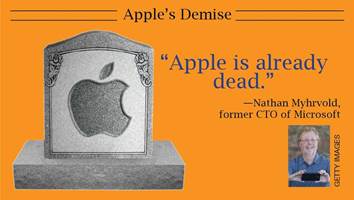So, what have we gotten right and not so right over the years? What have been our “Shockingly Bad Prognostications”?
Marc Petock
Chief Marketing & Communications Officer,
Lynxspring, Inc.
Contributing Editor
|
December 2021 |
[an error occurred while processing this directive] |
| Predictions, Prognostications, and Guesses So, what have we gotten right and not so right over the years? What have been our “Shockingly Bad Prognostications”? |
Marc Petock Chief Marketing & Communications Officer, Lynxspring, Inc. Contributing Editor |
| Articles |
| Interviews |
| Releases |
| New Products |
| Reviews |
| [an error occurred while processing this directive] |
| Editorial |
| Events |
| Sponsors |
| Site Search |
| Newsletters |
| [an error occurred while processing this directive] |
| Archives |
| Past Issues |
| Home |
| Editors |
| eDucation |
| [an error occurred while processing this directive] |
| Links |
| Software |
| [an error occurred while processing this directive] |
As we approach the end of the year it is a time for many to share their time-honored tradition of predictions. Yes, I have contributed my share over the years as seen in these previous submissions to automatedbuildings.com:
https://www.automatedbuildings.com/news/jan21/articles/marc/201218093901marc.html
https://www.automatedbuildings.com/news/jan20/articles/lynxspring/191227110505lynxspring.html
https://www.automatedbuildings.com/news/mar19/articles/lynxspring/190215114505lynxspring.html
https://www.automatedbuildings.com/news/feb18/articles/lynxspring/180122111707lynxspring.html
https://www.automatedbuildings.com/news/jan14/articles/lynxspring/131227013909lynxspring.html
Instead of doing the typical slant for this upcoming year, I thought it would be good to be different. This inspiration is thanks in part to a recent article I read that appeared in Industry Week’s November 15, 2021, online issue and first ran in November 2014. Even though it appeared then, it is still very pertinent today and yes, to our industry.
Entitled, The Worst Tech Predictions of All Time, authored by Patricia Panchak and Jack Shaw, the piece begins with the following statement:
“Sometimes even smart people make dumb predictions and predicting the future of technology seems to be an area most rife with risk. As technology speeds ahead and inventors devise products that challenge most human imagination, it's no wonder we sometimes get it wrong.”








































So, what have we gotten right and not so right over the years? What have been our “Shockingly Bad Prognostications”?
As we approach 2022, what will be our predictions, prognostications, and guesses? What will be the topics of choice? Open? Open source? Wireless? Data? Hybrid? Protocols, other than BACnet and Lon? AI/ML? Twining? Metaverse? The belief HVAC components from different manufacturers all work together?
Regardless, as the authors point out, “predictions, and predicting the future of technology seems to be an area most rife with risk.” Sorry, I cannot resist this prediction… one thing is for sure, change is going to continue to be constant. The way we interact with technology within the built environment has changed dramatically and is still changing. We need to be prepared for it.
To read the full article go to:
AHR Expo 2022
Join me at AHR Expo 2022 where I will be leading our ninth annual Connection Community Collaboratory, an open conversation with industry influencers on a variety of subjects that are playing a role in making our built environment smarter and sustainable. I am certain we will engage in Predictions, Prognostications, and Guesses. More information can be found here:
http://automatedbuildings.com/news/oct21/reviews/210925125701ahr.html
[an error occurred while processing this directive]
[Click Banner To Learn More]
[Home Page] [The Automator] [About] [Subscribe ] [Contact Us]